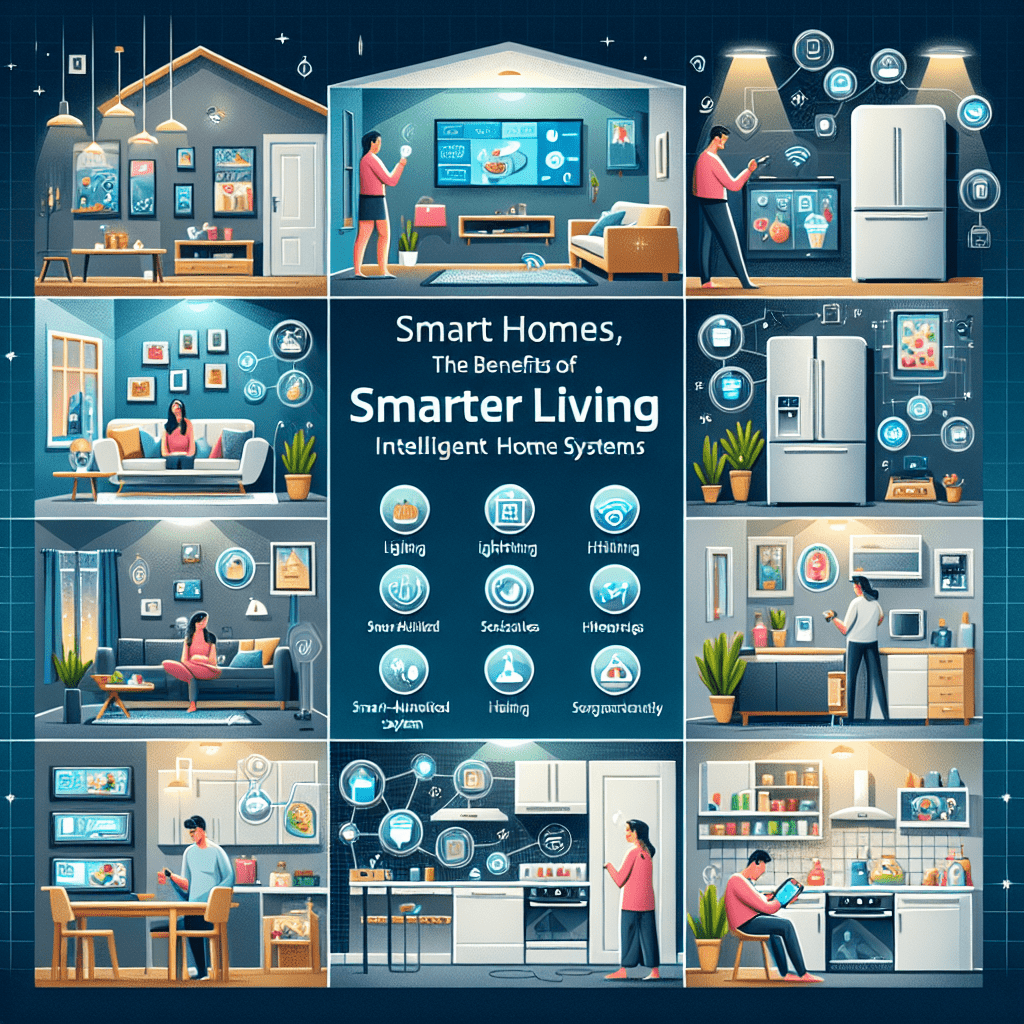Smart homes are becoming increasingly popular as technology continues to advance. These intelligent home systems offer a wide range of benefits that can make daily life easier, more convenient, and even more secure. From smart thermostats to lighting systems, security cameras, and voice assistants, smart home technology is revolutionizing the way we live. In this article, we will explore the various benefits of smart homes and how they can enhance your lifestyle.
Convenience and Automation
One of the biggest advantages of smart homes is the convenience and automation they offer. With a smart home system, you can control various devices and appliances in your home with just a touch of a button or voice command. For example, you can set your thermostat to adjust the temperature based on your preferences, schedule your lights to turn on and off at specific times, and even lock or unlock your doors remotely. This level of automation can save you time and effort, making daily tasks easier and more efficient.
Energy Efficiency
Smart home systems can also help you save energy and lower your utility bills. By monitoring your energy usage and adjusting settings accordingly, smart devices can optimize your home’s energy efficiency. For example, a smart thermostat can learn your heating and cooling preferences and adjust the temperature accordingly to reduce energy waste. Smart lighting systems can also be programmed to turn off lights when they are not in use, saving electricity. These energy-saving features not only benefit the environment but also your wallet.
Security and Safety
Another key benefit of smart homes is the enhanced security and safety they provide. Smart home devices such as security cameras, doorbell cameras, and motion sensors can help deter intruders and keep your home secure. You can receive real-time alerts on your smartphone when there is suspicious activity, allowing you to take action immediately. Additionally, smart smoke detectors and carbon monoxide detectors can alert you to potential hazards in your home, providing peace of mind and potentially saving lives.
Accessibility and Comfort
Smart home technology can also improve accessibility and comfort for individuals with disabilities or mobility issues. With voice-controlled devices and automated systems, those with physical limitations can easily control their home environment without the need for manual adjustments. For example, smart blinds can be controlled with a voice command, smart speakers can read out messages or reminders, and smart appliances can be operated remotely. These features can make daily living more comfortable and convenient for all residents.
Increased Home Value
Investing in smart home technology can also increase the value of your property. Homebuyers are increasingly looking for homes with modern amenities and smart features, so installing intelligent home systems can make your home more attractive to potential buyers. Additionally, smart home technology is seen as a long-term investment that can improve your home’s overall functionality and appeal. By incorporating smart devices into your home, you can enhance its market value and appeal to a wider range of buyers.
Conclusion
Smart homes offer a range of benefits that can improve your quality of life and make daily living more convenient, efficient, and secure. From automation and energy efficiency to security and accessibility, intelligent home systems can enhance your home environment in numerous ways. By investing in smart home technology, you can enjoy a more comfortable and convenient lifestyle while also potentially increasing the value of your property. Consider incorporating smart devices into your home to experience the benefits of smart living firsthand.
FAQs
Q: Are smart home systems secure?
A: Smart home systems are designed with advanced security features to protect your privacy and data. It is important to follow best practices such as using strong passwords, enabling two-factor authentication, and regularly updating your devices to minimize security risks.
Q: Do smart home devices require an internet connection?
A: Yes, most smart home devices rely on an internet connection to function properly. They communicate with a central hub or cloud server to receive commands and updates, so a stable internet connection is essential for optimal performance.
Q: Can I install smart home technology myself?
A: While some smart devices can be easily installed by homeowners, others may require professional installation. It is important to read the manufacturer’s instructions and guidelines before attempting to install any smart home devices to ensure they are set up correctly and safely.
TIP: Stay informed about the latest smart home technology trends and updates to make the most of your intelligent home system. Subscribe to tech blogs, follow industry experts on social media, and attend smart home expos to stay ahead of the curve.
#Smart #Homes #Smarter #Living #Benefits #Intelligent #Home #Systems
